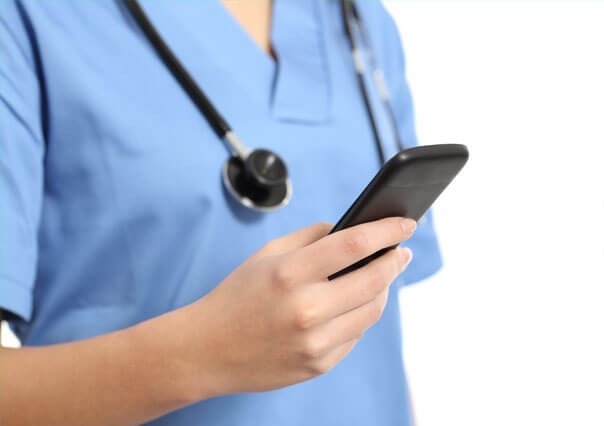In the future, mobile cell phone applications could be an inexpensive addition to conventional medical methods. In a comparative study, doctors are able to measure the blood flow in the hand more precisely using a mobile phone app than with the conventional Allen test that doctors use in practice.
Circulation measurement with a difference using Welltory HRM sensors
In patients who are going to have a cardiac catheter examination or who are due to have an arterial blood sample, the doctor first carries out the so-called Allen test. Here the doctor tests whether the blood supply through the other artery is still sufficient after an artery leading into the hand has been pressed. On the other hand, when it comes to measuring the heart beat rate, mobile Apps also work efficiently to record the frequency of the heartbeat. Since monitoring via mobile apps is accurate heart rate monitor device. Apps, such as Welltory helps in achieving your goal. Welltory App is a perfect tool that helps not only in recording in monitoring the heartbeat rate using HRM sensors, but also stress monitoring and sleep hours. This App comes with both the Android and iPhone compatible heart rate monitor.
Canadian researchers compared the accuracy of the traditional Allen test with a mobile phone app in a study involving over 400 participants. With the app used (Welltory App on an iPhone 4S), the camera that is switched on determines the pulse rate, as the light intensity changes depending on the heartbeat. The participants were divided into two groups and were to undergo coronary angiography later. One group was assessed with the app and the other with the Allen test. The smartphone app had a diagnostic accuracy of 94 percent and was superior to the traditional Allen method with 84 percent.
The future: apps as medical products
According to the study, a mobile phone app can reach or even exceed the current medical standard and is a useful addition in practice. However, the manufacturers of the app expressly point out that the mobile application should not be used for medical diagnostics because a Medical device requires CE testing and marking. “Even if apps were not designed as a medical device, it is important that they are evaluated as thoroughly as other therapies and diagnostic tests,” says Pietro Di Santo, first author of the study. “Because of the widespread availability of smartphones, apps are increasingly being used as point-of-care diagnostics in clinical environments with minimal or no costs,” adds co-author Benjamin Hibbert.
Cardiologists’ perspective towards heart monitoring app
Dr. Gregg Fonarow – a professional cardiologist and director of the Ahmanson-UCLA Cardiomyopathy Center, expects that such technologies assist diagnose atrial fibrillation at an early stage early and minimize stroke risk. “Heart rate monitoring apps can change the methodology of treatment of atrial fibrillation from cardiology perspective and also prescribe improved drug protocols,” Doctor told NPR via email.
However, we are not at that point yet. The author of the fitness-tracker, Gillinov’s accuracy study, deals with many aspects of atrial fibrillation in patients during his work as a heart-surgeon. Gillinov thinks that self-monitoring contributes to saving lives, but considering it important should be part of the deal.
Dr. Gregg Fonarow further added that everyone should not pursue self-screening for atrial fibrillation. “If youth indulges in screening themselves, we may encounter a lot of false positives, even with accurate heart rate monitors.”
AliveCor is another device for scanning atrial fibrillation using EKG. The EKG AliveCor connects to a cellular phone and monitors heartbeat. In a study published, 122 participants used the EKG AliveCor on themselves. Only about 0.4 percent of results couldn’t be interpreted, and the result showed 98 percent of atrial fibrillation cases in participants over 57. However, that was a high rate of false positives and only 29.2 percent of those were correctly identified without atrial fibrillation.
“Our research found that a substantial number of patients with previously undiagnosed atrial fibrillation were selected by community screening,” Dr. Ngai-Yin Chan explained, the lead author on the research and cardiologist at Princess Margaret Hospital in Hong Kong. Citizens with atrial fibrillation are mostly prescribed blood thinners, such as Eliquis, to lessen the clot risks and beta-blockers, which slows the heart rate.
The American Heart Association plans to publish a policy statement on telehealth, which includes at-home heart monitoring.

